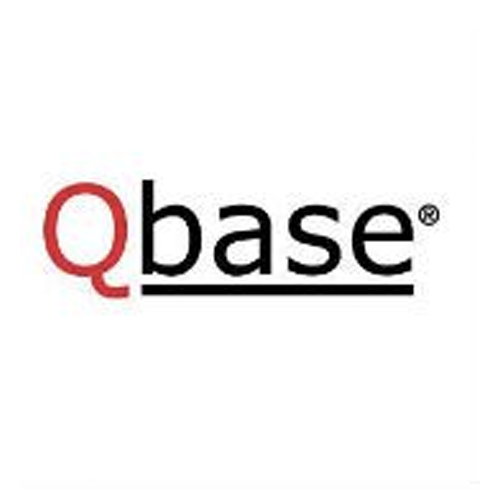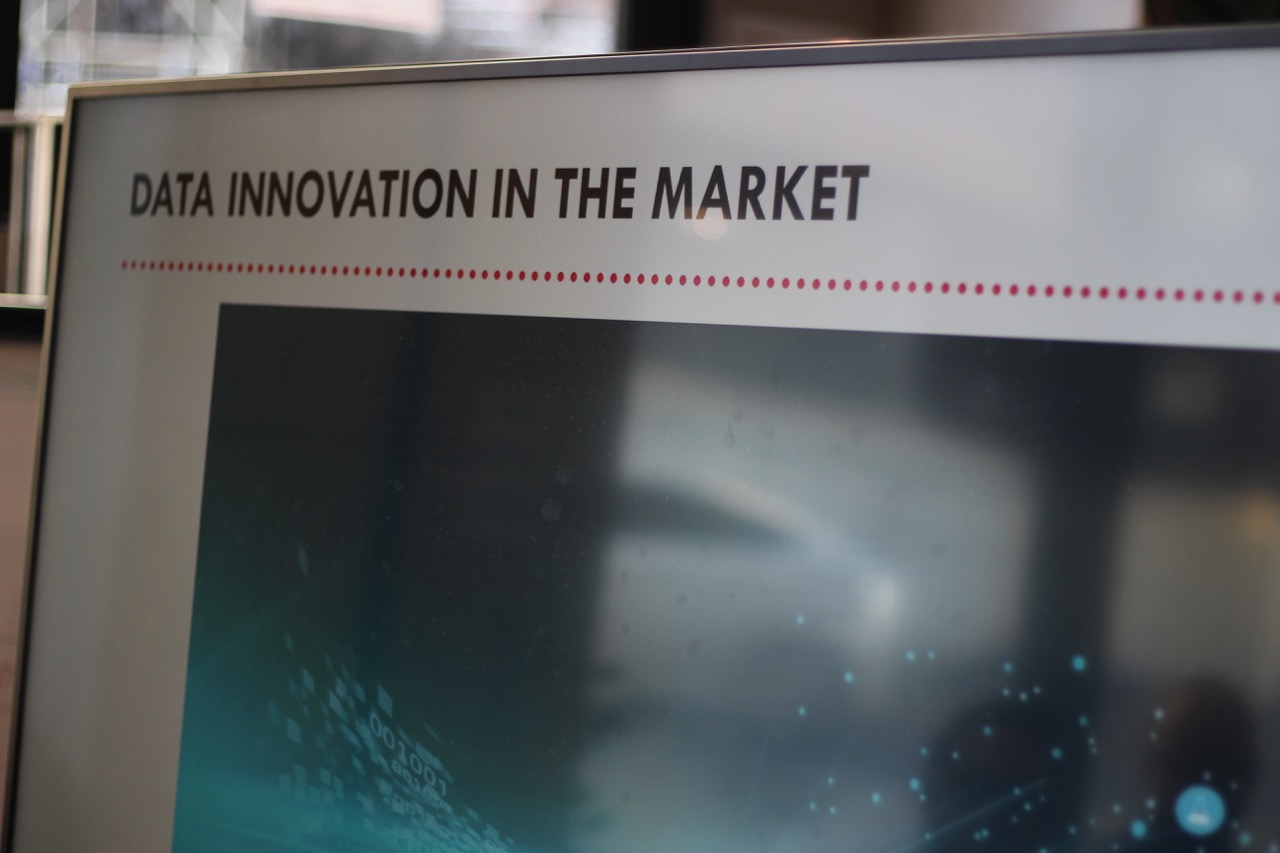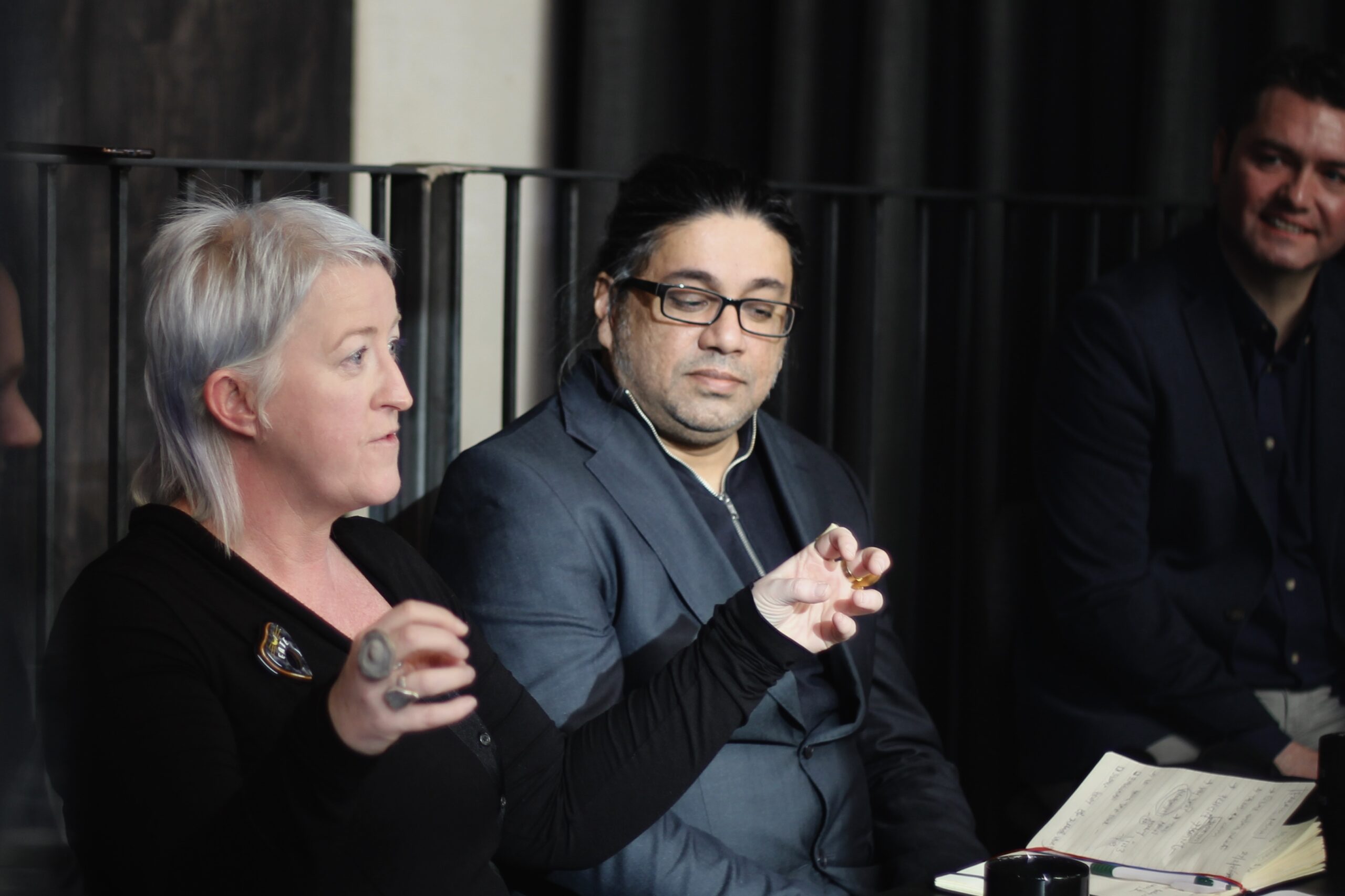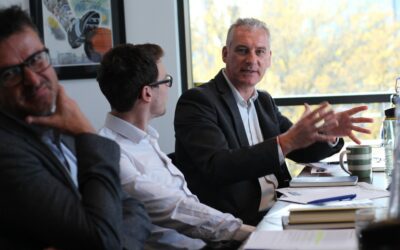Review: Data Innovation at Speed – Prolific North Roundtable Discussion

-
by Charlie Spargo
Subscribe to the Prolific North Daily Newsletter Today!
Want all the latest content from Prolific North delivered direct to your inbox daily? Of course you do!


A group of business leaders across a range of sectors gathered at Manchester’s Colony Piccadilly last week for a discussion on the topic of ‘Data innovation at speed’.
The morning, which was hosted by Qbase and partners Talend, provided the chance to discuss how brands in the modern age are using data more effectively – and the absolute necessity for them not to ignore it.
Data is regularly and perhaps excessively described as “the new oil”, a vast well of information that has the power to change the way people work in every single industry. Its proliferation can’t be overstated – in fact, by 2021, our devices are set to generate an annual volume of data equivalent to nearly 847 zettabytes (or 847 billion TB).
A selection of the region’s figures from marketing, eCommerce and beyond, were invited to discuss the things they’d learnt about using data with the greatest efficiency – exploring how it can drive new developments and set businesses up for future success.
Chaired by David Prior, Editor of Prolific North
Attendees:
- Bharat Lad, CEO, DadShed
- Sarah Lundy, Digital Director, Workhouse Marketing
- Eliot Clawson, Google Shopping Specialist, Bidnamic
- Uzo Ezeh, Head of Agency Partnerships, Total Processing
- Rob Jones, CEO, Qbase Data Services
- Nick Townsend, UK Territory Manager, Talend

After coffees and breakfast, the attendees took their seats to hear first and foremost from Neil Martin, QBase’s Commercial Director. Neil provided a short overview of the work of both Qbase and Talend, and some of the key pieces of information the two data specialists had taken away from their work.
Then, David Prior (Prolific North) kicked things off by welcoming the guests, before challenging them to tell him why data really matters in this day and age.
Rob Jones (Qbase) said data is the currency of business. Nothing happens in business without data. A company like Domino’s, who describe themselves as “a data company who delivers pizza”, is a great example – their new strategy has seen share prices rise by 20 times.
Sarah Lundy (Workhouse Marketing) said our expectations have changed. We expect everything immediate, accurate, and personalised. If businesses get that wrong, we don’t want to know. It’s data that helps us get it right and underpins business success.
Rob (Qbase) explained that data is a reduction in risk – that’s because it means companies have a bank of lessons learned from previous interactions with customers and more. If you’ve got that information to hand, it reduces risk for your next choice.
Eliot Clawson (Bidnamic) said the clients that succeed are the ones that look past their expectations and embrace the learnings, regardless of whether it sounds logical to them. Some of us say we don’t trust information because it’s not come from a human being – but numbers don’t lie.
Nick Townsend (Talend) said data has been transformational. Now all companies can have the information they need in front of them – informing decisions on growth, reducing risk, and driving efficiency. These things matter to all companies.
Looking at the specifics of his own industry, Bharat Lad (DadShed) said data can save time, money and stress for occupiers and developers. One in three trips to manage a building is just to look at it – but with data available on-app, any contractor would be able to bring a spare part directly to avoid the initial trip.
Using data to make lives easier
Uzo (Total Processing) said a big problem in the eCommerce world are ‘chargebacks’ – customers getting a product delivered then cancelling the payment through their bank. With a small amount of data, a company can prevent it and save millions. Systems can identify who’s committing fraud, where it most commonly happens, or which products are the most likely to be fraudulently acquired.
Sarah (Workhouse Marketing) said one wholesaling partner managed to use data to serve the customer better. What suppliers wanted promoting wasn’t what customers appeared to. By using data to inform promotion decisions, they saved a huge amount of time and resources. The leaders of tomorrow, she said, are the ones who understand they don’t know everything.
Is data just being used to change our established processes, asked David (Prolific North).
No – it helps with understanding previous processes too, said Eliot (Bidnamic). Ultimately making things more efficient, data doesn’t just drive change but understanding.
Rob (Qbase) emphasised that it creates new opportunities too. Amazon pioneered what we do in data now, by building a business around data. It created billions in revenue by turning data into a product itself.
Nick (Talend) said what he’s seeing is people changing the way they’re thinking. Innovation at speed is more about how to take data and make it good quality, so informed decisions can be made.
It’s not even just about being efficient, said Uzo (Total Processing). Companies, for example, can use data to inform where to have a bricks-and-mortar store based on information about purchases.
Limitations and challenges
On the other hand, said Rob (Qbase), there are some who have failed to embrace data at all. Only around half of charities have utilised their data to make services better. Those that have have connected the offline experience with the digital one. However those that haven’t recognise the need for change.
It’s not even cost, said Sarah (Workhouse Marketing). They’re stuck with old preconceptions and ways of working – some businesses with multi-million turnovers have just a spreadsheet. Companies’ processes can still be very siloed – even within their building there’s hierarchies. Some see a competitor innovating and say “we want that now,” but they have to lay new foundations first.
Uzo (Total Processing) said that around 10% of legacy businesses that look like they’re really succeeding probably don’t use data very efficiently. But using data can massively help time consumption, workflow, and work-life balance – just by having certain things automated can save so much time.

Sarah (Workhouse Marketing) said it actually helps her company when they talk to people about their personal lives. Ask them how they book a holiday or whether they have a smart energy meter – and the lightbulb goes on. If they wouldn’t like their information handled badly by a utility provider, for example, they understand why their customers would feel the same.
Rob (Qbase) said at one company, eight people were employed just to move files around. Now it’s been automated, it’s just one and a half – none have lost their job, just redeployed to more worthwhile roles, and the business is doing much better.
Nick (Talend) said that one large filmmaker was receiving all the data from cinemas every week in a variety of formats, and whole teams were dedicated to processing it slowly, by hand. Talend unlocked the time for the team, who were still business experts, so now the filmmaker can quickly use that data to negotiate on a weekly basis. The barriers have gradually been broken down.
David (Prolific North) asked who should drive that transformation – given that data touches every part of a business.
There has to be across-the-board buy-in, said Uzo (Total Processing). If you have no specific goal for the data, haven’t located these tasks, or got buy-in across the board, it’ll make the process less efficient or even not work.
Bharat (DadShed) said his organisation is attempting to engage all the different groups required to manage a building. When it comes to contractors, for example, if they fill out the data on the app during construction, they’ve got potential work when it’s finished. It also requires buy-in from the developers, and the goal of gamifying the experience means occupiers will be involved too.
It’s use-cases planting the seed that ultimately makes the difference, said Rob (Qbase). A lower-level employee brings the information with them and proves its benefit. One very large trade company with B2B and B2C customers took a risk by prioritising delivery for clients who embraced data and used the app – regardless of the size of customer. In the end, a formerly stagnating business is doing much better again.
The role of data protection
Nick (Talend) pointed out that after GDPR, the financial risk of data misuse meant CFOs were instantly involved. The use and protection of data immediately became board-level after that.
Sarah (Workhouse Marketing) confirmed that after GDPR’s introduction, databases might have got smaller but the quality of the data got higher.
Eliot (Bidnamic) said that AI and ML are changing how data is collected and processed. Before, especially with mobile, data sets were so vast they weren’t useful once they were processed. Using AI to process at speed allows for rapid reaction, and valuable agility.
Rob (Qbase) looked to the examples of AutoTrader and Hotels.com – the former built an interactive app drawing on data to recommend selling prices, while the latter has consolidated photos for places to stay based on consumer preferences. Both have been transformed.
How accessible really is ML and AI, asked David (Prolific North).
It can be combined and bolted on easily, said Bharat (DadShed), and Rob (Qbase) agreed – it’s accessible, he said, because you can buy it on a use basis. Eliot (Bidnamic) said it depends on how detailed you need it to be – a small business owner doesn’t need extreme detail on every customer but can utilise AI and ML for smaller tasks.
There are opportunities with data and innovation for a wide range of sectors. It’s not necessarily all optimistic, said Sarah (Workhouse Marketing) – some are scared that healthcare costs could go up if people’s data is monitored for what they’re choosing to do, while on the other hand health needs are being predicted and tackled effectively.
For property, developers will only change when they stop making money, which they still are, said Bharat (DadShed). 99% of buildings are handed over with a fault – but imagine any other sector handing over faulty products. Occupiers push for innovation, but it won’t come while developers still make big profits.
Data is everywhere and changing everything, Nick (Talend) concluded. Giants like Google and Amazon have smart city arms. IoT is in the ascendancy and manufacturers are very excited about it. It’s the future for us.

The conversation was a wide-ranging discussion which covered a range of real case studies in which businesses big and small effectively employed data to make a difference and improve their fortunes. There were also cautionary tales about what not to do.
Our guests provided practical advice to one another based on their unique experiences across businesses, and took away actionable points that would help them achieve more as a company, as well as support their customers and clients.















